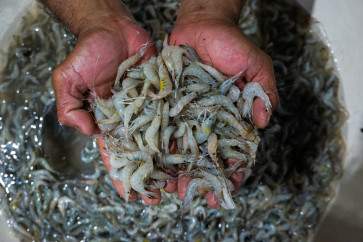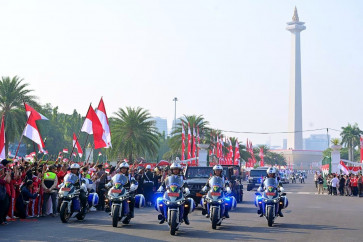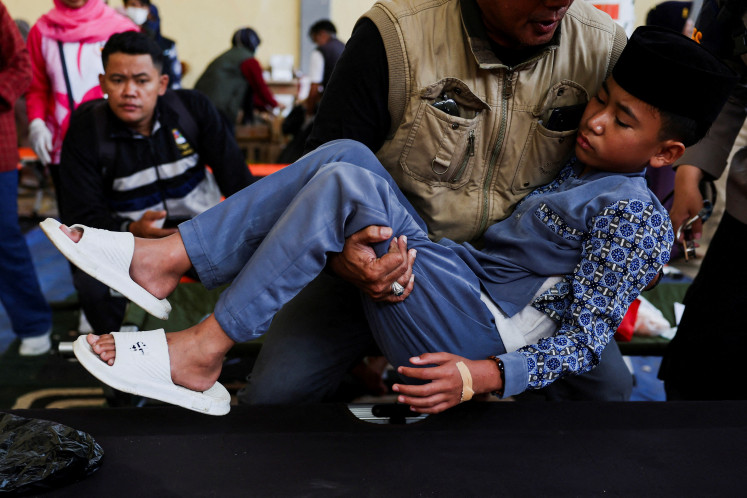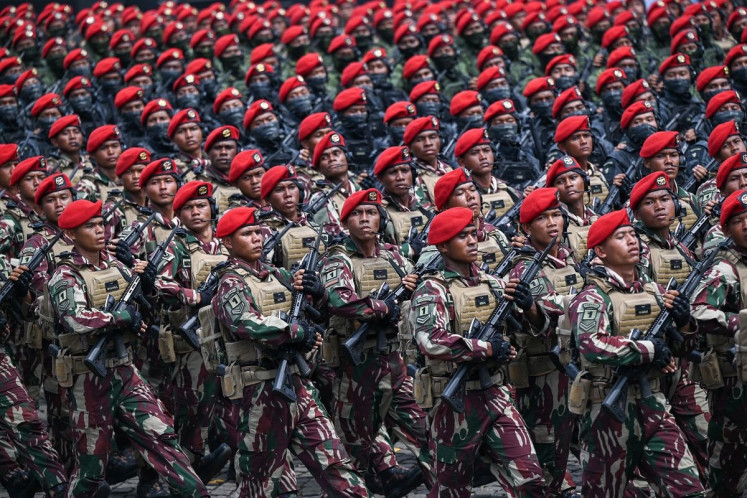Popular Reads
Top Results
Can't find what you're looking for?
View all search resultsPopular Reads
Top Results
Can't find what you're looking for?
View all search resultsBLBI case termination raises concerns over fate of high-profile graft cases
This is the first time the antigraft body has terminated a corruption investigation since a revision to the KPK Law allowed it to do so.
Change text size
Gift Premium Articles
to Anyone
T
he Corruption Eradication Commission (KPK) has pulled the plug an ongoing investigation into alleged graft pertaining to Bank Indonesia Liquidity Support (BLBI) funds, raising concerns that the antigraft body might do the same to other cases.
“The termination is part of our attempt to provide legal certainty in our law enforcement as mandated by Article 5 of the KPK Law, which requires us to work under legal certainty,” KPK deputy chairman Alexander Marwata said in a press briefing on Thursday.
Bank Dagang Negara Indonesia (BDNI) owner Sjamsul Nursalim and his wife Itjih Nursalim were named suspects in the case in June 2019. The Supreme Audit Agency (BPK) estimates that the alleged graft caused Rp 4.58 trillion (US$314 million) in state losses.
The case dates back to the 1997 Asian financial crisis when BDNI received Rp 28 trillion in BLBI funds, which were disbursed through the central bank to help it survive the monetary crisis.
Sjamsul claimed he had instructed the bank to use the funds for loans to farmers and fish farmers, but investigators accused him of misrepresenting the loans and enriching himself in the process.
Read also: KPK terminates 36 investigations amid declining public trust
The KPK had been chasing the Nursalims for years, even placing them on its most-wanted list in October 2019 after they failed to appear for questioning in Jakarta. However, the investigation stalled when it failed to unearth enough evidence.
Alexander added that the decision to end the investigation was in line with Article 40 of the KPK Law, which mandates that cases be terminated if they cannot be closed within two years.
The BLBI case was the first to be terminated following a revision to the KPK Law. The 2002 KPK Law prohibited the antigraft body from ending a case at the investigation or prosecution stage, but the provision was revised in 2019.
The BLBI graft case also implicated Syafruddin Arsyad Temenggung, the former chairman of the Indonesian Bank Restructuring Agency (IBRA). The court found him guilty in 2019 for manipulating BDNI’s credit status in 2014, sentencing him to 15 years in prison.
Several months later, however, the Supreme Court ruled in favor of Syafruddin’s appeal, saying he had not committed a crime. The KPK filed a case review against the ruling, but the court rejected it and argued it did not fulfill its formal requirements.
As Syafruddin was freed from all charges by the Supreme Court, Alexander said the antigraft body found no reason to continue the investigation against Sjamsul and Itjih, explaining that the prerequisite for the KPK to investigate a graft case that involved a state official was no longer fulfilled.
Indonesia Corruption Watch (ICW) criticized the move, calling it a bad precedent that would allow political maneuvering to top other graft investigations.
“Negotiations [between suspects and investigators] to terminate an investigation might be common in other law enforcement institutions. We’re concerned it will happen in the KPK, too,” said ICW researcher Kurnia Ramadhana.
He added that investigations into other high-profile corruption cases, such as those pertaining to the e-ID project or the Bank Century bailout that cost the state trillions of rupiah, could also be terminated.
Read also: Worsening graft may discourage investment to Indonesia: OECD
Kurnia also slammed the KPK for not doing enough to track down Sjamsul and Itjih, who reportedly left the country some time ago, and submitting the case to the court.
He argued that the KPK could still pursue the matter to recover the state losses incurred. “The KPK should file a civil lawsuit [against Sjamsul and his wife] for causing state losses, as mandated by Article 32 of the 2001 Corruption Law.”
He added that Article 40 of the revised KPK Law allowed for a terminated investigation to be restarted if investigators found new evidence in the case or a court ruled against the termination in a pretrial lawsuit.










